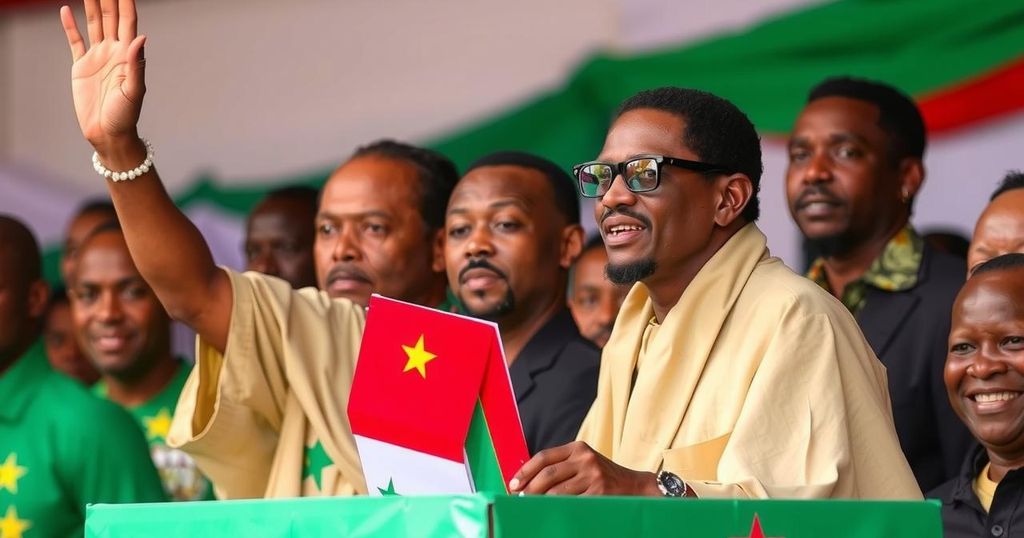Chad’s Ruling Party Claims Majority in Boycotted Parliamentary Elections

Chad’s ruling Patriotic Salvation Movement party won 124 out of 188 parliamentary seats in an election boycotted by major opposition parties, marking a key moment in the country’s political transition. The elections saw a 51.5% voter turnout and have been criticized as lacking credibility, reflecting ongoing tensions in Chad’s political landscape post-Idriss Deby.
In Chad’s recent parliamentary election, the ruling Patriotic Salvation Movement party secured a significant victory, winning 124 of the 188 available seats. This election, marking the first in over a decade, experienced a voter turnout of 51.5% according to provisional results released by Ahmed Bartchiret, the head of the electoral commission. The election was boycotted by numerous opposition parties, including the notable Transformers party, whose leader previously placed second in the presidential elections.
This parliamentary election, alongside regional and municipal elections, is perceived as a crucial step in Chad’s transition towards democracy following Mahamat Idriss Deby’s ascension as military ruler in 2021. Mahamat took over after the death of his father, the long-serving president Idriss Deby Itno. In his statements prior to the elections, Deby expressed that this electoral process would facilitate the decentralization of power, a move he described as eagerly anticipated by the Chadian populace.
The decision to boycott the election was supported by over 10 opposition parties, many of which labeled the electoral process a “charade”, voicing concerns regarding its credibility reminiscent of the disputed presidential election from the previous year. The opposition has not yet issued a formal response to the election outcomes.
Chad continues to navigate significant challenges, including growing insecurity due to Boko Haram insurgencies in the Lake Chad area, and strained military relations with France, a historically key ally.
Chad has experienced a turbulent political landscape, particularly following the death of long-time President Idriss Deby Itno in 2021. His son, Mahamat Idriss Deby, seized power amidst military upheaval, promising a transition to democratic governance. The recent parliamentary election is pivotal in determining the future of political power distribution in Chad, as it aims to decentralize authority to local levels. The opposition’s boycott indicates substantial distrust in the electoral process, reflecting fears of recurring undemocratic practices in what should be a transition to democracy.
In conclusion, the ruling Patriotic Salvation Movement’s decisive victory in Chad’s parliamentary election, despite significant opposition boycotts, may reinforce the current government’s hold on power. The cited voter turnout indicates a level of engagement, yet the absence of the main opposition raises concerns about the legitimacy of the electoral process. As Chad confronts both political and security challenges, the next steps will be crucial for its democratic aspirations and regional stability.
Original Source: abcnews.go.com







